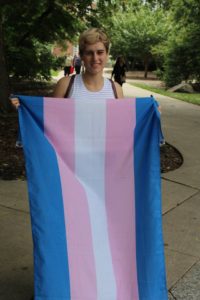 I made it a project of mine this year to construct a sort of pedagogy, or theory, of radical love. And people have directed me to all kinds of resources that are really great and radical. My friend Kaitlin pointed me toward Shine theory- which is summarized really well in the simple thought: I don’t shine if you don’t shine. Specifically, the focus was on women uplifting other women but I think we can expand it to all genders. Use it as a way of pushing back against gender-embedded violence.
I made it a project of mine this year to construct a sort of pedagogy, or theory, of radical love. And people have directed me to all kinds of resources that are really great and radical. My friend Kaitlin pointed me toward Shine theory- which is summarized really well in the simple thought: I don’t shine if you don’t shine. Specifically, the focus was on women uplifting other women but I think we can expand it to all genders. Use it as a way of pushing back against gender-embedded violence.
And I talk about gender in a broad sense keeping in mind this concept of toxic masculinity. Toxic masculinity is what creates and perpetuates rape culture. We need to mobilize against that. Gender can be used to mobilize something else—radical softness; through the uplift of femininity, and through performing types of masculinity that may not be dominant in the media, may be seen as alternate or subversive masculinities. But through the conscious performance of gender, certain actions, once normalized, can become the structure for a new society that vilifies rape.
Something else I found this summer was the writings of Lora Mathis, who’s a trans/non-binary poet. Their big thing is Radical softness as a weapon. They define radical softness “as the idea that unapologetically sharing your emotions is a political move and a way to combat the societal idea that feelings are a sign of weakness.”
“kiss your friends’ faces more / destroy the belief that intimacy must be reserved for monogamous relationships / be more loving / embrace platonic intimacy / embrace vulnerability / use emotionality as a radical tactic against a society which teaches you that emotions are a sign of weakness / tell more people you care about them / hold their hands / tell others you are proud of them / offer support readily / take care of the people around you.”
Okay, so I’m reading this as someone who doesn’t always like being touched. And obviously consent is a mandatory part of how any interpersonal intimacy needs to function. Ask your friends their boundaries. Ask small children before you pick them up. Respect their right to say no and model to them that you’re not upset when you get a no. There’s a real clear goal in mind here: Consent culture should replace rape culture.
And taking the cue from the adage ‘That the personal is political’, it isn’t too hard to see that emotions can be politicized. Marginalized people are politicized whether we like it or not; And that extends to femininity—womanhood. Queer people, queer movements have always radicalized and politicized love. But also if emotions have always been seen to be in the realm of femininity anyway, then heck yeah they’re already politicized by being the thing that patriarchal mechanisms have used to disempower us. We are reclaiming our feelings, fighting back against the notion that they’re illogical or irrational and saying we are doing emotions in a very purposeful, political way; because emotions don’t make us weak, they make us human.
To destroy toxic masculinity, men need to start prioritizing love. Shoutout to all my guy friends that do emotional support work for their friends, that make their friends feel safe and validated. We see you. We appreciate the hell out of you. Radicalize your love; That’s the biggest thing I have to tell men who claim they don’t contribute to rape culture.
I used to be scared of taking up physical space, noise space. Something a lot of people who are assigned female at birth are familiar with because of how we’re socialized. I reclaimed the use of my voice when I realized I needed it to strengthen my connection to my community, so now if I catch myself asking does this need to be said out loud? I usually think hell yeah this person needs to hear how much I appreciate them doing their thing! Training ourselves into a collectivist mindset we are fighting being cut off from caring about each other with the power of solidarity. As a means of resistance against all these abusive systems.
And so the biggest take away, for me, is that we need a cultural shift toward thinking collectively, consensually. In a society that teaches us to shy away from our emotions, we can use our love, emotional support work for each other, for ourselves, as a tool to fight back and reclaim our collective humanity.
Tyler Camp is a student organizer and president of UIUC’s Campus Union for Trans Equality and Support (CUTES). Their work is focused on creating safe and affirming spaces for transgender students on campus and to maintain solidarity with other student activist groups including Black Students for Revolution and Students for Justice in Palestine.
